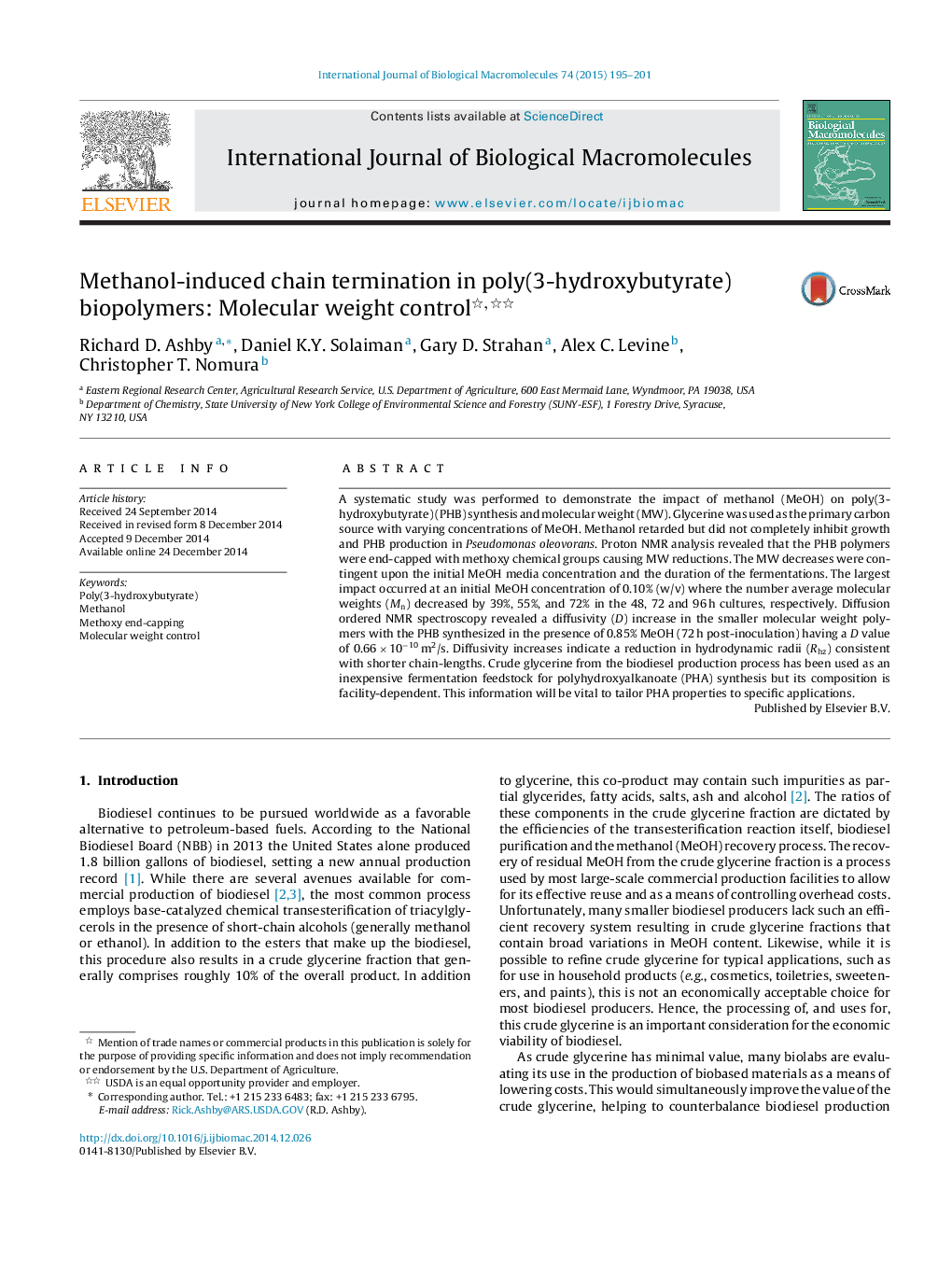| Article ID | Journal | Published Year | Pages | File Type |
|---|---|---|---|---|
| 8331882 | International Journal of Biological Macromolecules | 2015 | 7 Pages |
Abstract
A systematic study was performed to demonstrate the impact of methanol (MeOH) on poly(3-hydroxybutyrate) (PHB) synthesis and molecular weight (MW). Glycerine was used as the primary carbon source with varying concentrations of MeOH. Methanol retarded but did not completely inhibit growth and PHB production in Pseudomonas oleovorans. Proton NMR analysis revealed that the PHB polymers were end-capped with methoxy chemical groups causing MW reductions. The MW decreases were contingent upon the initial MeOH media concentration and the duration of the fermentations. The largest impact occurred at an initial MeOH concentration of 0.10% (w/v) where the number average molecular weights (Mn) decreased by 39%, 55%, and 72% in the 48, 72 and 96Â h cultures, respectively. Diffusion ordered NMR spectroscopy revealed a diffusivity (D) increase in the smaller molecular weight polymers with the PHB synthesized in the presence of 0.85% MeOH (72Â h post-inoculation) having a D value of 0.66Â ÃÂ 10â10Â m2/s. Diffusivity increases indicate a reduction in hydrodynamic radii (Rhz) consistent with shorter chain-lengths. Crude glycerine from the biodiesel production process has been used as an inexpensive fermentation feedstock for polyhydroxyalkanoate (PHA) synthesis but its composition is facility-dependent. This information will be vital to tailor PHA properties to specific applications.
Related Topics
Life Sciences
Biochemistry, Genetics and Molecular Biology
Biochemistry
Authors
Richard D. Ashby, Daniel K.Y. Solaiman, Gary D. Strahan, Alex C. Levine, Christopher T. Nomura,
